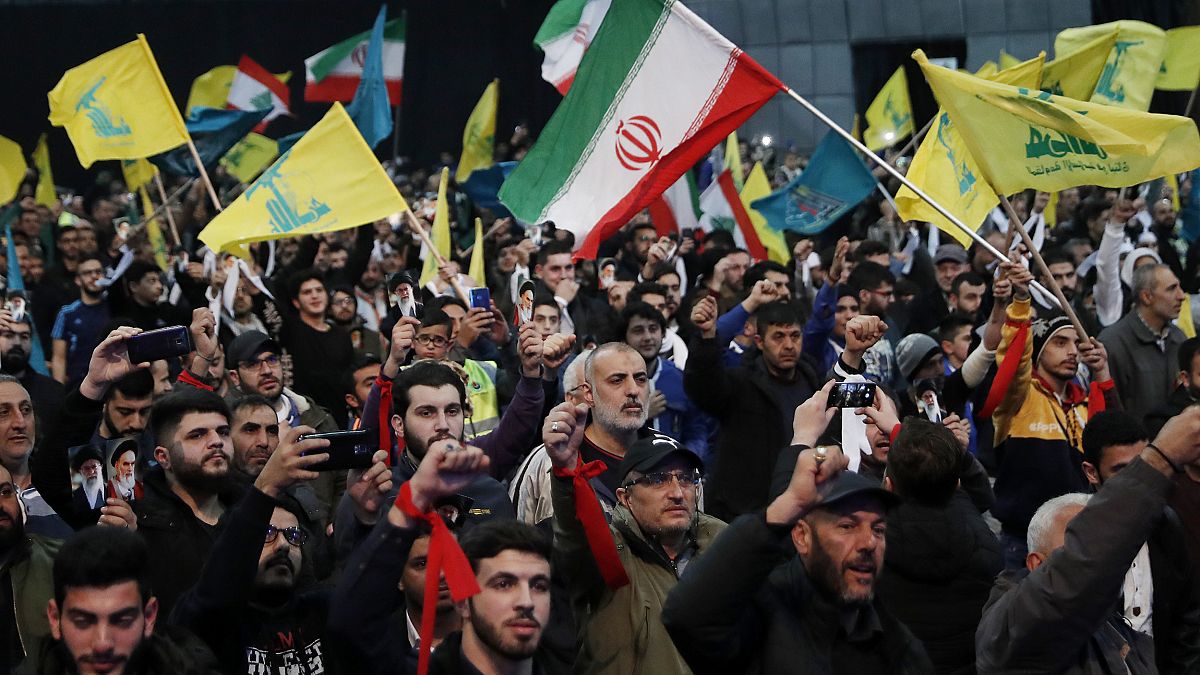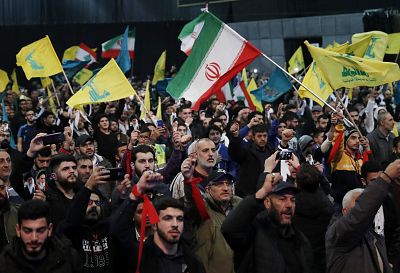Ali Kourani, a U.S. citizen, was "preoccupied with martyrdom" and spied for Hezbollah inside the U.S., as well as buying bomb-making materials in China.
Federal prosecutors have recommended a life sentence for an American citizen and New York resident who spied for Hezbollah inside the U.S., considered himself a "sleeper agent" of the international terror group, and called his family "the bin Ladens of Lebanon."
Prosecutors said in a sentencing memo released Tuesday that Ali Kourani was "focused on Hezbollah's jihad, and preoccupied with martyrdom — that is, dying for Hezbollah's terrorist cause."
"Although the defendant now sits in jail," wrote prosecutors, "there is no way of knowing with certainty when or how Hezbollah, Iran, and the IJO will use the intelligence the defendant collected to cause harm."
The case against Kourani has provided a unique look into how one of Iran's most formidable proxy forces operates inside and outside the U.S. Prosecutors revealed the group's drive to accumulate bomb-making materials from China and stockpile them globally, and to surveil terror targets in the U.S. and abroad.
Kourani was found guilty at trial in May of all eight counts against him, including charges he provided support to Hezbollah, received military training from Hezbollah, and obtained his U.S. citizenship in 2009 in order to be an agent of the group, which is officially designated a Foreign Terrorist Organization by the U.S. government.
According to the sentencing memo, "He spent years helping Hezbollah and Iran prepare to strike strategic and vulnerable targets around New York City, such as federal facilities housing day care centers, critical infrastructure, counterterrorism command posts, and international airports, as well as members of the NYPD, the Mossad, and the Israel Defense Forces ('IDF')."
With tensions between the U.S. and Iran high, experts believe that should the two countries come to blows, Hezbollah could play a key role, carrying out attacks both domestically and against U.S. targets overseas.
When Kourani was convicted, the head of the FBI in New York, William Sweeney, said the arrest was a reminder of the group's intentions in the U.S.
"With so much focus rightly on ISIS and self-radicalized terrorists currently, the public may not realize the established, historical extremist groups are still operating and actively recruiting members," Sweeney said.
NBC News terrorism analyst Nicholas Rasmussen, a former director of the National Counterterrorism Center, said he believes the Kourani case fits "very much into the modus operandi that Hezbollah employs around the world."
"All of this in my mind is part of a very well developed Hezbollah and Iranian 'playbook' that sits on the shelf (metaphorically speaking) ready to be utilized at the time and place they deem it necessary."
Kourani is slated to be sentenced on Tuesday, Dec. 3, in a federal courtroom in Manhattan.
Now 35, Kourani told the FBI that he got his first training from Hezbollah at age 16 in his home country of Lebanon. Training at the Hezbollah camp included military tactics and how to fire an AK-47 assault rifle and a rocket launcher.
He said he was eligible for the training because of family connections with the group. He said he considered his family to be the "bin Ladens of Lebanon," according to the unsealed federal complaint against him, and said his brother was the face of Hezbollah in Yatar, Lebanon.
Hezbollah, a largely Shia Muslim group with a power base in Southern Lebanon, is part of the country's elected government. It is also a proxy force for Iran, and fought a war with Israel in 2006 after raining rockets on Israeli civilians. Two separate Hezbollah bombings in Lebanon in 1983 killed 241 U.S. Marines and 29 people at the U.S. embassy. Hezbollah operatives are also blamed for lethal bombings against Jewish targets in Argentina in the 1990s.
Kourani moved to the U.S. in 2003. He told the FBI he was not formally recruited by Hezbollah until 2008, when he joined the group's international arm, known variously as the IJO, the External Security Organization, or 910.
Kourani said he was encouraged to seek U.S. citizenship by his Hezbollah handler, who went by the pseudonym Fadi, in order to ease his movement across borders.
He became a naturalized citizen in 2009, and according to prosecutors traveled to China within weeks in order to secure bomb-making materials for Hezbollah.
Kourani purchased ice packs in order to repurpose their ammonium nitrate pellets for explosives, say prosecutors. According to court documents, Kourani "went to China to develop connections to potential suppliers of ammonium nitrate in 2009, at a time when the IJO was in the early phases of planning attacks using the explosive chemical."
Stashes of the ice packs were found around the world between 2012 and 2015. At least one attack tied to the packs resulted in the death of six Israelis in Bulgaria.
One former U.S. intelligence official said there was no indication that Hezbollah planned to carry out anything imminent using the explosives found in some of the caches found around the world. Instead, the belief in intelligence community was that Hezbollah was "pre-positioning" caches of explosives and other materiel around the world for use in case of hostilities.
Between 2009 and 2015, Kourani told the FBI he also surveilled at least four federal buildings in New York City at the request of Hezbollah, including offices of the FBI and the Secret Service, shooting video.
Living in the Bronx, he told the FBI he thought of himself as a "sleeper agent" for Hezbollah. He said Hezbollah liked to "develop 'sleepers' who maintained ostensibly normal lives but could be activated."
He also told the FBI he received another round of military training from Hezbollah in 2011, where he fired machine guns, submachine guns and a Glock pistol.
Kourani's first brush with U.S. law enforcement was not for terrorism but for counterfeiting, which Hezbollah operatives have long used to finance operations in the U.S.
On Nov. 8, 2013, the NYPD stopped Kourani because boxes of shoes were blocking his rear windows. Officers found 190 pairs of counterfeit Uggs boots in his car, and charged him with traffic offenses and possession of counterfeit goods.
In 2015, Kourani returned to Lebanon and received more military training, according to prosecutors.
When he returned to the U.S., he was detained at JFK Airport in New York. When federal agents discovered his phone was missing his memory card, they searched his possessions and found it hidden under a travel sticker on the back of Kourani's passport.
By April 2016, after the discovery of the ice pack caches, the FBI had made contact with Kourani. He initially cooperated, telling the bureau of his life as a sleeper. When he stopped cooperating two years later, the government indicted him.



